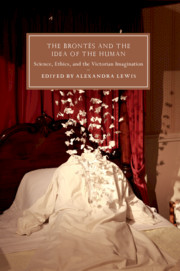Book contents
- The Brontës and the Idea of the Human
- Cambridge Studies in Nineteenth-Century Literature and Culture
- The Brontës and the Idea of the Human
- Copyright page
- Contents
- Figures
- Contributors
- Abbreviations
- Introduction Human Subjects
- Chapter 1 Hanging, Crushing, and Shooting
- Chapter 2 Learning to Imagine
- Chapter 3 Charlotte Brontë and the Science of the Imagination
- Chapter 4 Being Human
- Chapter 5 Charlotte Brontë and the Listening Reader
- Chapter 6 Burning Art and Political Resistance
- Chapter 7 Degraded Nature
- Chapter 8 ‘Angels … Recognize Our Innocence’
- Chapter 9 ‘A Strange Change Approaching’
- Chapter 10 ‘Surely Some Oracle Has Been with Me’
- Chapter 11 Jane Eyre, A Teaching Experiment
- Chapter 12 Fiction as Critique
- Chapter 13 We Are Three Sisters
- Bibliography
- Index
- Cambridge Studies in Nineteenth-Century Literature and Culture
Chapter 6 - Burning Art and Political Resistance
Anne Brontë's Radical Imaginary of Wives, Enslaved People, and Animals in The Tenant of Wildfell Hall
Published online by Cambridge University Press: 22 May 2019
- The Brontës and the Idea of the Human
- Cambridge Studies in Nineteenth-Century Literature and Culture
- The Brontës and the Idea of the Human
- Copyright page
- Contents
- Figures
- Contributors
- Abbreviations
- Introduction Human Subjects
- Chapter 1 Hanging, Crushing, and Shooting
- Chapter 2 Learning to Imagine
- Chapter 3 Charlotte Brontë and the Science of the Imagination
- Chapter 4 Being Human
- Chapter 5 Charlotte Brontë and the Listening Reader
- Chapter 6 Burning Art and Political Resistance
- Chapter 7 Degraded Nature
- Chapter 8 ‘Angels … Recognize Our Innocence’
- Chapter 9 ‘A Strange Change Approaching’
- Chapter 10 ‘Surely Some Oracle Has Been with Me’
- Chapter 11 Jane Eyre, A Teaching Experiment
- Chapter 12 Fiction as Critique
- Chapter 13 We Are Three Sisters
- Bibliography
- Index
- Cambridge Studies in Nineteenth-Century Literature and Culture
Summary
Deborah Denenholz Morse’s chapter on Anne Brontë’s radical imaginary of wives, slaves, and animals links art and political resistance both within the novels and in terms of their creation. Morse extends the recent Animal Studies interest in Emily Brontë’s work to a close consideration of how the mistreatment of animals, particularly dogs, in Anne’s novels embodies interrogations of other forms of confinement and abuse. With a focus on The Tenant of Wildfell Hall and reference to Agnes Grey, and attention to specific Yorkshire and West Riding links to slavery and abolitionism, Morse shows how Anne Brontë’s writing exposes the cultural and societal license that connects acts of violence against women and animals, and in doing so undermines masculine privilege and human mastery. The Tenant of Wildfell Hall insists upon the humanity of slaves and also, by extension, of wives (another form of human property) as well as arguing for the humane treatment of animals. Morse traces Helen’s movement from servitude to rebellion through changes in her art. Both Helen’s art and diary and Anne Brontë’s novel are powerful indictments of oppressive masculine prerogative and English law, which come together in the legally brutal control of gentlemen over enslaved female bodies.
- Type
- Chapter
- Information
- The Brontës and the Idea of the HumanScience, Ethics, and the Victorian Imagination, pp. 125 - 146Publisher: Cambridge University PressPrint publication year: 2019



